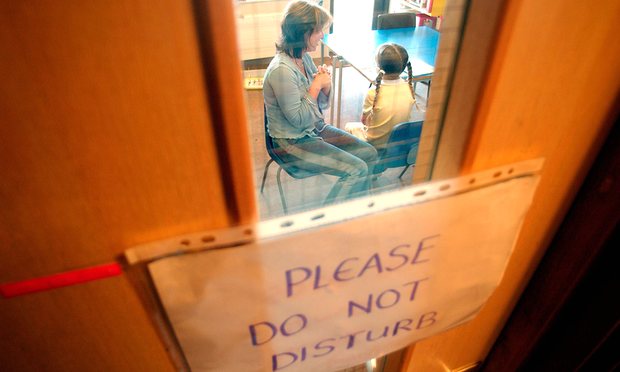
The prime minister, Theresa May, has pledged to tackle mental health stigma as part of her vision for her “shared society”. May announced plans to transform the way mental illness is dealt with not in our hospitals but in classrooms, at work and in our communities. The initiative has been largely welcomed, although there is concern that this is yet another governmental policy that hinges on goodwill rather than identifiable resource.
Given the stakes, we cannot afford to be sceptical or dismissive about any initiative on stigma.
Just as mental illness is a common phenomenon, so is stigma. Mental health problems affect more than 450 million people worldwide, of whom more than three-quarters come from middle- and low-income countries. At least one in four people will experience a mental health problem at some point in their life and one in six adults has a mental health problem at any one time.
An Australian survey (pdf) found that three out of four patients with mental illness reported that they had experienced stigma. The same study also found that one in four members of the public thought depression was a sign of weakness and said they would not employ a person with depression; around a third would not vote for a politician who had depression, and one in five said if they had depression they would keep it to themselves.
Patients suffer a range of adversities as a result of stigma and discrimination, from distress to suicidal acts. A number of patients are put off seeing a mental health professional for fear that they will be looked down on if they venture anywhere near a psychiatric unit.
A substantial number of patients therefore remain untreated, and if they do seek treatment it is often when their illness has become so severe that there is little option for them or their relatives to obtain specialist help. Barriers preventing patients seeking help or adhering to treatment include a lack of positive experiences, poor knowledge of mental disorders and their treatment, reliance on faith based or religious healers, and specific taboos such as marital or child-bearing prospects.
Mental illness, and by implication stigma, has a profound impact on individuals, their families and the community as a whole.
The wider impact of such stigmatisation has not been studied in detail. However, there is good evidence that the carers and families of affected individuals can be similarly affected. Furthermore, it is not unusual for mental health professionals themselves to be looked down on by other health professionals.
The de-stigmatisation of mental illness requires a complete change in attitude by the medical and other professions. It is unethical to discriminate against any patient on any count, and in this regard mental illness is no different. The evidence is compelling that the best outcomes are achieved by ensuring any mental disorder is treated vigorously in patients who present with physical disease. It is entirely unacceptable that patients with severe mental illness should die 10 to 20 years earlier than the general population.
Patients with mental illness and a concomitant physical disease are also reluctant to seek medical advice, and have worse outcomes; the reverse is also true, that patients with a physical illness and concomitant mental illness also have worse outcomes than those without any mental disorder. The role of clinicians is crucial in providing that holistic approach to physical and mental care and treatment to ensure that such anomalies are eliminated
There is compelling evidence that severe mental illness in most patients shows signs of emergence at an early age, sometimes as early as seven years. In the majority of cases, schools are well equipped to dealing with minor behavioural problems, but as more complex issues arise, expert help needs to be immediately accessible through child and adolescent mental health services. However, there are major issues – including recruitment, costs and availability of beds – that have to addressed urgently because the system is at breaking point in many areas.
In regards to employers, there will have to be a sea change in their attitudes. There is widespread discrimination of patients with mental illness; more often than not patients will make no declaration for fear that they will become unemployable. It remains to be seen how the government will tackle this.
Stigma of mental illness is a serious issue that requires a concerted and collaborative political, social, medical and media will to eradicate. The negative impact it has on patients and their families and carers must not be underestimated.
The prime minister may have bitten off more than she can chew, but there must be no doubt at all that her announcement gives us fresh impetus and thinking on how to tackle an issue that has blighted the lives of millions of people worldwide, and continues to do so. However, if she has the strength of her convictions than she must have no illusions; she can no longer rely on the overstretched goodwill of the staff, be they in education, healthcare or the voluntary sector. Without allocating resources, this is little more than motherhood and apple pie.
Join the Healthcare Professionals Network to read more pieces like this. And follow us on Twitter (@GdnHealthcare) to keep up with the latest healthcare news and views.
Credit: the Guardian


